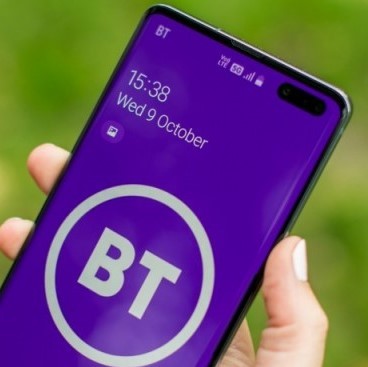Eurobites: BT proposes £1,500 bonus for frontline workers
Also in today's EMEA regional roundup: Orange chosen by GÉANT; the ethics of location data; Telefónica teams up on IoT, 5G and blockchain.

Also in today's EMEA regional roundup: Orange chosen by GÉANT; the ethics of location data; Telefónica teams up on IoT, 5G and blockchain.
In a move that more cynical observers might interpret as an attempt to stave off a threatened strike, BT is proposing a £1,500 (US$2,057) "special bonus" for what it terms frontline colleagues and key workers. Those eligible, who include engineers fixing faults in the field, would receive £1,000 immediately in cash and £500 in shares after three years. As the operator is keen to point out, this equates to a bonus of 5% of the average frontline salary in the UK. In a statement announcing the plan, BT says that the offer is being made "despite BT freezing pay across the company and ongoing, unresolved discussions with the trade unions over its transformation and modernisation plans."
Orange has been chosen by GÉANT, the organization that operates a pan-European network for scientific research, to be one of its "preferred partners" in the Open Clouds for Research Environments (OCRE) project. OCRE's aim is to promote the joys of cloud services to academic and research institutions. Orange will bring its Flexible Engine public cloud platform to the party.
Orange is also setting up a Data and AI Ethics Council to encourage the application of ethical principles to the operator's use of data and AI technologies. One of the topics addressed will be how to incorporate principles of non-discrimination and equality in the design of AI-based systems. The Council will be made up of 11 independent experts in related fields, including several professors in such subjects as robotics and moral philosophy.
Elsewhere on the ethical front, Ordnance Survey, the UK's national mapping agency, has joined a group of organizations dedicated to stop technology companies from using location data in intrusive and inappropriate ways. As the Telegraph reports, Ordnance Survey is just one of a number of organizations signing up to the ten principles of the Locus Charter, which include understanding the potential impacts of using location datasets and not collecting or using more data than is necessary for a task.
Telefónica's cybersecurity arm, Telefónica Tech, has teamed up with Fibocom and Aitos.io to jointly create new products that combine 5G, IoT and blockchain technologies. The hope is that such offerings will address the issue of the trustworthiness of the data that IoT devices exchange, preventing unauthorized tampering or unexpected updates.
Telefónica has also been testing transport-network automation offerings from Elisa Automate, a business unit of Polystar. For those wanting to play buzzword bingo, Elisa Automate says it offers "zero-touch automation and agile configuration."
Sky, the UK-based purveyor of pay-TV and more, has launched a new service aimed at meeting and managing the connectivity needs of small businesses. "Sky Connect" offers three different packages starting at £39 ($53) a month and comprising elements such as 76Mbit/s broadband, 4G backup in case the fixed-line connection fails and malware protection.
Ooredoo Kuwait has extended its collaboration with Infovista, choosing the French company's radio planning portfolio to upgrade more than 2,500 5G network sites across the country.
Telia Sweden has entered into what it calls an exclusive cloud gaming partnership with Microsoft, offering its customers the Xbox Game Pass Ultimate subscription service, which provides players with access to over 100 games on their Android mobile device, Xbox console or Windows 10 PC connected to Telia's network.
— Paul Rainford, Assistant Editor, Europe, Light Reading
Read more about:
EuropeAbout the Author(s)
You May Also Like











